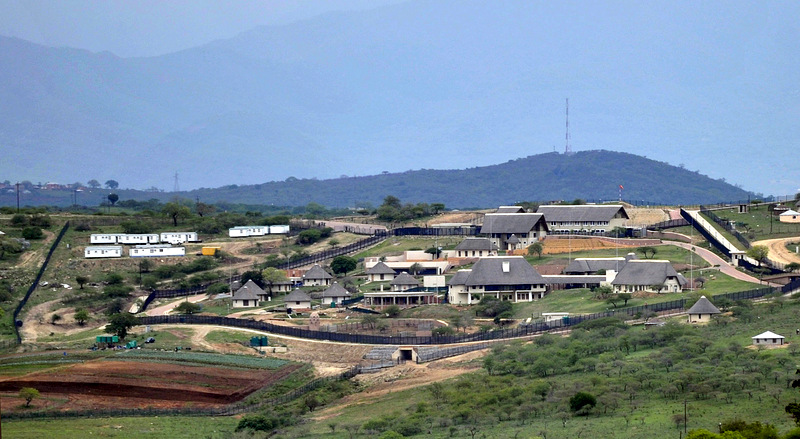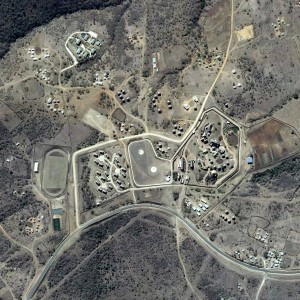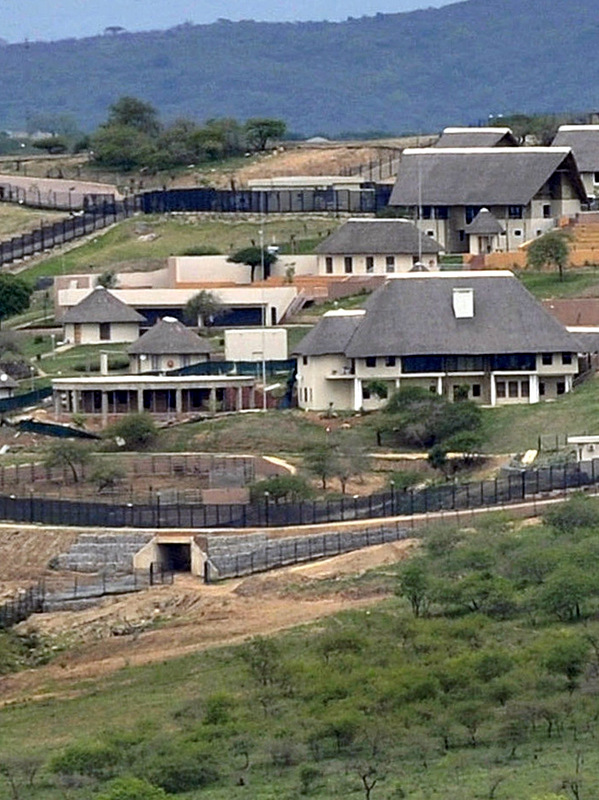
In a report covering over 400 pages, South Africa’s Public Protector Thuli Madonsela accused President Jacob Gedleyihlekisa Zuma of “unethical” conduct. The report alleged that he used millions of taxpayer dollars to carry out lavish renovations at his home.
Undue Benefits
Madonsela claimed that the president “benefited unduly” from taxpayer money to upgrade his private residence in the rural province of KwaZulu-Natal. In her report released on Tuesday, the public protector said Zuma spent more money than he was allotted for his home renovation.
The lavish renovations of his controversial Nkandla palace, according to Madonsela’s report, cost taxpayers

over 246 million South African rand (about $23 million).
Zuma’s home upgrades include a swimming pool and a cattle enclosure, though the renovations were supposed to be part of a security upgrade. Madonsela recommended that Zuma, who is currently preparing for re-election in May, repay the state for “unnecessary” renovations of his residence in Nkandla, which has been dubbed “Zumaville” by the local press.
Zuma became president in May 2009. At the time, many young people hoped that his government would usher in change, especially because he comes from a poor background. But now, impoverished South Africans believe the liberation movement has hit its lowest point under Zuma’s leadership, and they’ve questioned his ties with the wealthy Gupta family that bankrolled the ruling African National Congress in return for favors.
Released at a time when thousands of unemployed young people roam the streets of South Africa, the report is a harsh reminder of the gap between the country’s rich political elites and the poor still struggling for their daily survival.
Overspending
In 2009, the original estimate for the president’s home renovations was 27 million SA rand. Madonsela reportedly launched her investigation in 2012, when it was revealed that the estimate had escalated to about 206 million SA rand, according to various news sources.
The report, “Secure in Comfort,” alleged that Zuma’s state-sponsored renovations cost eight times the money spent in providing two homes for late President Nelson Mandela, and more than 1,000 times the cost of securing a home for the country’s last apartheid-era president, Frederik Willem de Klerk, commonly known as F. W. de Klerk.
Madonsela’s report likely isn’t sitting well with the president. Local newspapers have reported that Zuma has repeatedly informed parliament that he used his family’s funds to renovate his residence.
“I took the decision to expand my home and I built my home with the money rondavels, more than once, and I fenced my home. And I engaged the bank and I’m still paying a bond on my first phase of my home,” Zuma said in 2009.
Madonsela disagreed. “The president tacitly accepted the implementation of all measures at his residence and has unduly benefited from the enormous capital investment in the non-security installations at his private residence,” according to the report’s executive summary.
With just two months until the national elections, political opponents are gearing up to publicly challenge the president, forcing Zuma and the ANC to race to resolve the issue.
Swimming Pool
Madonsela’s report also highlighted what was described as “a development approach” by Henrietta Bogopane-Zulu, the public works deputy minister. According to the report, Bogopane-Zulu said President Zuma agreed with her idea to convert his fire pool into a swimming pool “to be used by the children of the village.”
The report also indicated that the swimming pool was deemed necessary in the village because many of the houses have thatched roofs and water in the pool could be used in case of a fire emergency.
While the report called the pool’s necessity into question, the deputy minister also reportedly suggested that the Nkandla community could use it for swim lessons.
Still Suffering
“So many people are still suffering, that is heartbreaking,” Brendon Adams, co-founder of New Hope International, told MintPress News. “It is never about the people. He just thinks about himself and what he can get.”
Adams said the South African parliament is not working for the people. He questioned why Zuma was able to get $23 million when many South Africans can not get help from their government.
For more than 12 years, Adams and his wife sought government funding for their Minnesota- and Cape Town-based nonprofit, but couldn’t secure any. Originally from South Africa, they moved to Minnesota, where they continue to raise funds for New Hope to help children in South Africa.
“It is sad to hear that Zuma is spending $23 million on his home. If we don’t be careful, we will become like Zimbabwe, Kenya and Sudan,” Adams said, citing the political chaos in some of these African countries due to mismanagement.
“He is still our president, but things started going downhill now that Nelson Mandela is dead,” he said. “He was the only one that kept them in check. Now they can do anything.”
Though he stands accused of misleading the parliament over his renovation costs, President Zuma has denied any wrongdoing. The public protector said the president has 14 days to respond to her report before the South African parliament.


